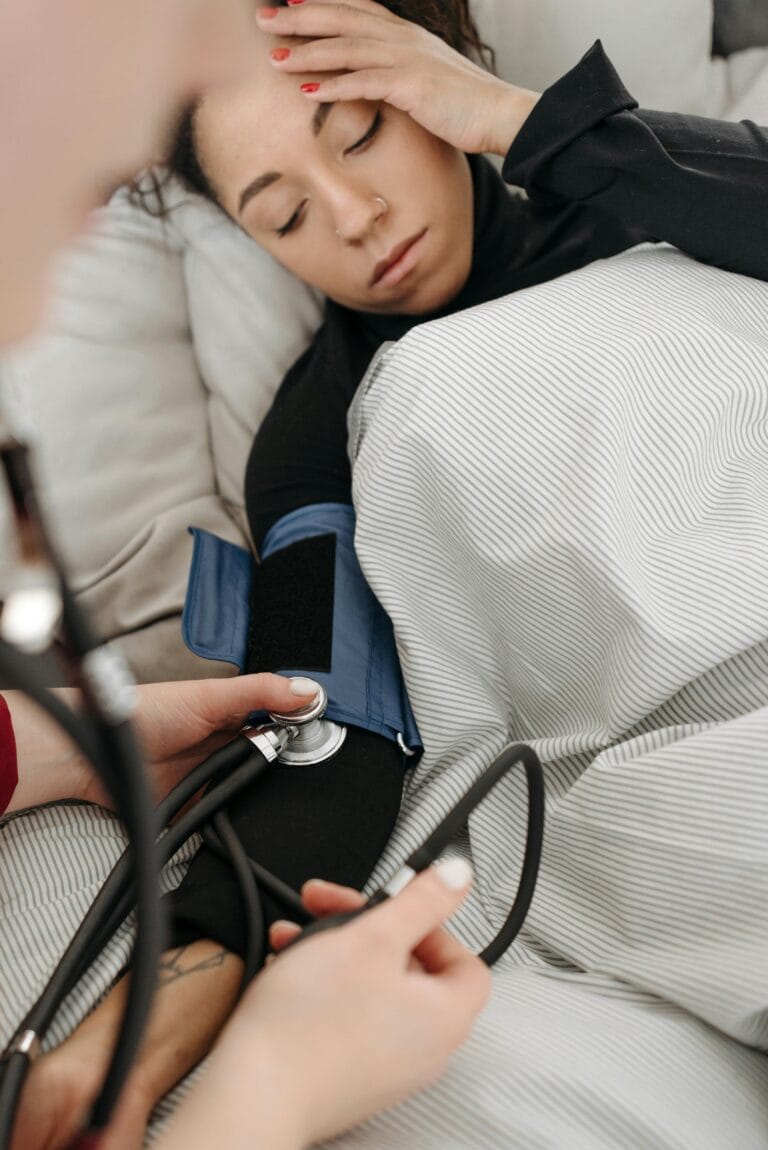FREE SHIPPING OVER $50
Tired, Swollen Legs? 8 Essential Vitamins to Recharge Your Leg Circulation

Do you often find yourself rubbing your calves at the end of the day, feeling that familiar ache, heaviness, or frustrating swelling in your ankles and feet? You’re certainly not alone. Many people experience symptoms of poor leg circulation, which can make even simple daily activities feel like a chore. That sensation of tired, swollen legs isn’t just uncomfortable; it’s a sign that your body might need a little extra support to keep things flowing smoothly.
But what if a significant part of the solution could be found right in your daily nutrition? While lifestyle choices play a huge role, certain essential vitamins are absolute powerhouses when it comes to supporting your vascular health and helping to recharge your leg circulation. This isn’t about quick fixes; it’s about giving your body the foundational tools it needs to optimize its incredible circulatory system.
Understanding Leg Circulation: Why It Matters (and Why It Fades)
So, why do we sometimes experience poor leg circulation? Several factors can contribute to this common issue:
- Sedentary Lifestyle: Sitting or standing for prolonged periods without much movement can significantly impede blood flow. When your muscles aren’t contracting, they’re not effectively pushing blood back towards your heart, leading to pooling in the lower legs and feet.
- Aging: As we get older, our blood vessels can naturally become less elastic, and the valves in our veins (which prevent backflow) might weaken. This makes it harder for blood to flow efficiently against gravity.
- Underlying Health Conditions: Certain medical conditions are known culprits. Varicose veins, for instance, are caused by weakened vein walls and faulty valves. Conditions like diabetes, high blood pressure, and high cholesterol can damage blood vessels over time, narrowing them and restricting flow.
- Nutritional Deficiencies: A lack of key vitamins and minerals can compromise the integrity of blood vessels, hinder red blood cell production, and impair overall circulatory function.
- Other Factors: Smoking (which severely constricts blood vessels), obesity (adding pressure to veins), and even pregnancy can also contribute to circulation problems.
The symptoms of poor leg circulation are often easy to spot: that familiar feeling of tired, heavy legs, noticeable swelling in the ankles and feet (especially by evening), numbness or tingling, persistent leg cramps (particularly at night), cold feet, and sometimes even skin discoloration or slow-healing sores. Addressing these issues is vital not just for comfort, but for long-term leg health and overall vitality.
8 Essential Vitamins to Recharge Your Leg Circulation
Here are 8 essential vitamins that can play a transformative role in improving your leg circulation, helping to alleviate those tired, swollen legs and bringing back comfort.
1. Vitamin C
- Why It’s Essential for Circulation: Vitamin C is a potent antioxidant that protects blood vessels from damage caused by free radicals, which can impair circulation. Crucially, it’s vital for the production of collagen, a protein that forms the structural integrity of your blood vessels. Strong, elastic blood vessels are fundamental for efficient blood flow. It also supports the production of nitric oxide, a molecule that helps relax and widen blood vessels.
- Food Sources & Supplementation Tips: Rich sources include citrus fruits (oranges, grapefruits), bell peppers, strawberries, kiwi, broccoli, and leafy greens. Many people find a daily Vitamin C supplement beneficial, especially during times of stress or increased demand. Aim for a daily intake of at least 500-1000mg, but adjust based on individual needs and tolerance.
2. Vitamin E
- Why It’s Essential for Circulation: Vitamin E is another powerful antioxidant that helps protect blood vessel walls from oxidative stress. It is also known to support healthy blood flow by helping to prevent blood clots. It can improve the elasticity of blood vessels, making them more pliable and efficient.
- Food Sources & Supplementation Tips: Find Vitamin E in nuts (almonds, hazelnuts), seeds (sunflower seeds), vegetable oils (wheat germ, sunflower, safflower), and leafy green vegetables. If supplementing, choose mixed tocopherols for a broader spectrum of Vitamin E compounds, typically around 200-400 IU per day.
3. Niacin (Vitamin B3)
- Why It’s Essential for Circulation: Niacin, particularly in its nicotinic acid form, is well-known for its vasodilating effects, meaning it helps to widen blood vessels, which can improve blood flow. This effect is often accompanied by a temporary “niacin flush” (redness and warmth), indicating improved peripheral circulation. It also plays a role in reducing cholesterol levels, which can contribute to healthier arteries.
- Food Sources & Supplementation Tips: Good dietary sources include lean meats, poultry, fish, nuts, legumes, and fortified grains. If you choose to supplement, start with a low dose of nicotinic acid and gradually increase it to assess tolerance for the flush, or opt for a “no-flush” niacin form. Consult a health professional for appropriate dosing, especially for high-dose therapy.
4. Vitamin B6 (Pyridoxine)
- Why It’s Essential for Circulation: Vitamin B6 plays a critical role in the metabolism of homocysteine, an amino acid. High levels of homocysteine are associated with damage to blood vessels and an increased risk of blood clots, both of which impair circulation. By helping to keep homocysteine levels in check, Vitamin B6 supports vascular health. It also contributes to red blood cell formation.
- Food Sources & Supplementation Tips: You can get Vitamin B6 from poultry, fish, potatoes, bananas, chickpeas, and fortified cereals. Most B-complex vitamins include a sufficient amount of B6.
5. Folate (Vitamin B9)
- Why It’s Essential for Circulation: Like Vitamin B6, Folate (or folic acid in supplement form) is essential for the proper metabolism of homocysteine. Adequate folate levels help prevent the buildup of this harmful compound, thereby protecting blood vessels and promoting healthy blood flow. It’s also crucial for the formation of healthy red blood cells.
- Food Sources & Supplementation Tips: Found abundantly in dark leafy greens, legumes, asparagus, avocado, and fortified grains. Many multi-vitamins contain folate, and individuals planning pregnancy are often advised to take folic acid supplements.
6. Vitamin B12 (Cobalamin)
- Why It’s Essential for Circulation: Vitamin B12 works synergistically with folate and Vitamin B6 to metabolize homocysteine. A deficiency in B12 can lead to elevated homocysteine levels, potentially harming blood vessels and contributing to circulation problems. It’s also vital for nerve health, which is crucial for proper blood vessel regulation.
- Food Sources & Supplementation Tips: Primarily found in animal products like meat, fish, poultry, eggs, and dairy. Vegetarians and vegans are at higher risk of B12 deficiency and often require supplementation. B12 supplements are available in various forms, including sublingual tablets for better absorption.
7. Vitamin D
- Why It’s Essential for Circulation: While often associated with bone health, Vitamin D plays a crucial role in vascular health as well. It supports the function of the endothelium (the inner lining of blood vessels), helping them to relax and contract effectively. It also has anti-inflammatory properties, which can protect blood vessels from damage and improve overall blood flow.
- Food Sources & Supplementation Tips: Our bodies produce Vitamin D when exposed to sunlight. Dietary sources are limited (fatty fish, fortified foods). Many individuals, especially those with limited sun exposure, may benefit from Vitamin D supplementation. A doctor can test your levels and recommend an appropriate dosage.
8. Vitamin K2
- Why It’s Essential for Circulation: Vitamin K2 is a less commonly discussed but critically important vitamin for vascular health. It helps direct calcium into bones and away from soft tissues like arteries. By preventing the calcification (hardening) of arteries, Vitamin K2 helps maintain their elasticity and ensures smooth blood flow, which is vital for preventing circulation problems.
- Food Sources & Supplementation Tips: Found in fermented foods (like natto, a Japanese fermented soybean dish), certain cheeses, and egg yolks from grass-fed chickens. Due to its limited presence in modern diets, Vitamin K2 supplementation (specifically MK-7 form) is increasingly recognized for its vascular health benefits.
When to Talk to Your Doctor
While vitamins and lifestyle changes are powerful tools, it’s crucial to know when to seek professional medical advice. If you experience persistent or severe symptoms such as:
- Significant pain in your legs, especially during walking or resting.
- Sudden or severe swelling in one leg.
- Skin discoloration, open sores, or non-healing wounds on your legs.
- A feeling of coldness, numbness, or weakness in your legs.
These could be signs of more serious underlying conditions that require immediate medical diagnosis and treatment. Vitamins and lifestyle support can complement, but never replace, a comprehensive medical evaluation from a doctor.
Conclusion
Living with tired, swollen legs due to poor circulation doesn’t have to be your norm. By understanding the vital roles of these 8 essential vitamins, you gain powerful tools to support your vascular health from the inside out.
Combine this targeted nutritional support with smart lifestyle choices like regular movement, proper hydration, and a balanced diet, and you’re well on your way to experiencing the profound difference in your leg circulation. Imagine enjoying walks, standing longer, and simply feeling more comfortable and energetic throughout your day. Take action today to recharge your leg circulation and step into a future of greater comfort and vitality!
Related Articles
- Doctors Say: This is the Best Time to Take Vitamin C Supplements for Maximum Benefits (Morning on an Empty Stomach)
- Hair Loss? A Naturopathic Doctor’s 4 Must-Have Supplements for Thicker, Fuller Hair
- Tired, Anxious, Cramping? Your Body’s 8 Urgent Signs You’re Low on Magnesium
- Doctors Reveal: The 5 Powerhouse Vitamin Combos You Need for Optimal Health
- Tired All the Time? This Powerhouse Supplement Boosts Focus, Stamina & Overall Vitality







